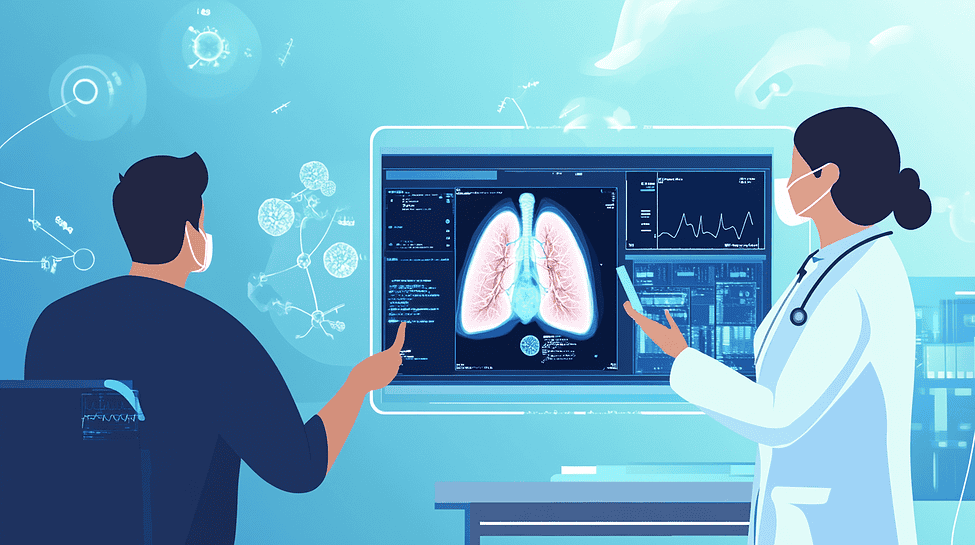Health minister Fleur Agema, sees a "revolutionary" role for AI in healthcare, with the goal of cutting administrative time in half by 2030. Healthcare professionals, however, temper expectations and point to implementation challenges. Meanwhile, Dutch hospitals are already embracing AI applications. From algorithms to improve emergency care to lung cancer detection, several applications are already emerging.

Why this is important: As the population ages, the need for health care increases. At the same time, hospitals are coming under pressure from staff shortages. Various AI applications are offering help.
The minister discussed her vision of the future of Dutch health care during Nieuwsuur. According to her, a step is needed to address the sector's challenges. By 2033, the Dutch healthcare sector is expected to face a shortage of 200,000 workers. Agema sees AI as a crucial means of preventing this crisis, with the goal of significantly reducing the administrative burden. In addition, legislation should be worked on to streamline processes and improve data exchange.
Trial projects and cautious optimism
.Agema's enthusiasm is reflected in its focus on pilot projects such as the one at the Elisabeth-TweeSteden Hospital (ETZ) in Tilburg. This initiative is aimed at easing administrative tasks using AI, but the hospital's president, Bart Berden, urges caution. He warns that while promising, these technologies need time, resources and practical validation before they can be fully relied upon. Agema acknowledges that AI alone will not solve the staffing crisis, but urges exploration of all possible solutions to prevent the health care system from collapsing.
Emergency care innovation
Other initiatives are being implemented across the country. At St. Antonius Hospital in Utrecht, AI is being tested to improve emergency care. This project, launched on Sept. 2, 2024, uses an AI algorithm to predict patient admissions and optimize activities in the emergency room. The system is updated every 5 minutes and analyzes data such as vital signs and test results to help medical staff. Although AI helps make decisions, the final say remains with physicians, ensuring a balance between technology and human expertise. This initiative aims to reduce wait times and improve patient satisfaction, while easing staff workload.
Breaking cancer treatment research
.St. Antonius Hospital is also using AI to detect lung cancer faster. By analyzing chest scans, AI improves diagnostic accuracy and operational efficiency. It provides detailed assessments of tumors and compares scans to previous scans, which helps radiologists in their evaluations. The hospital's AI Expert Center plays a crucial role in managing these initiatives and fosters collaboration between departments. In addition, the hospital plans to test AI systems for detecting bone fractures by the end of 2024, aiming for greater accuracy than traditional methods.
In Eindhoven, researchers are developing AI solutions for detecting pancreatic cancer and planning treatments. This research, part of the ACACIA project, is a collaboration with several institutions and aims to integrate AI into existing medical processes. The AI system uses deep learning models to locate tumors and assess their involvement with blood vessels, which is crucial for treatment planning. Clinical trials will begin next year, with the goal of improving efficiency without replacing physicians, thereby improving outcomes for patients.
Navigating Between Challenges and Opportunities
Although AI has transformative potential, implementing it in healthcare presents challenges. Issues such as integration into existing workflows, gaining trust among healthcare professionals and ensuring regulatory compliance are critical. Researchers and hospitals are actively working to address these issues, emphasizing AI as a support tool rather than a replacement for human expertise. As AI applications gain momentum, their role in healthcare will depend on careful, evidence-based integration that respects the nuances of medical practice.
As pilot projects and research initiatives progress, AI's potential to revolutionize healthcare is becoming more tangible. However, the journey requires collaboration, patience and a commitment to balancing innovation with practical realities.
Source: Innovation Origins